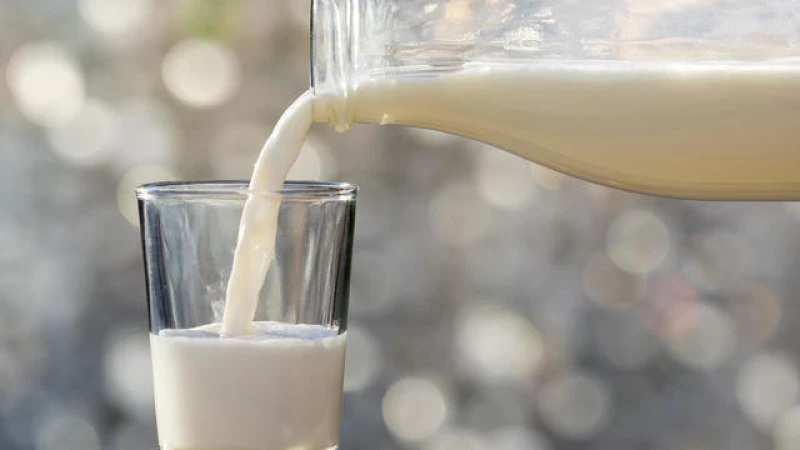According to preliminary findings from tests conducted by the Food and Drug Administration, pasteurization has been effective in eliminating bird flu from milk, the agency announced on Friday.
"This latest round of testing did not detect any live, infectious virus. These results confirm our belief that the commercial milk supply remains safe," stated the FDA in a press release.
The FDA's report follows its revelation that approximately 1 in 5 samples of retail milk tested across the nation had traces of highly pathogenic avian influenza, or HPAI H5N1. In response to the outbreak affecting a growing number of poultry and dairy cows, the U.S. Department of Agriculture has mandated testing protocols for cows this week.
Health officials and experts have clarified that positive PCR tests in milk may result from harmless virus fragments remaining post-pasteurization. To confirm the absence of infectious virus in the milk, supplementary tests were carried out, which ultimately demonstrated the virus was not viable.
"The FDA is currently examining retail samples from its investigation of 297 samples of retail dairy products from 38 states. Samples that test positive with PCR are undergoing egg inoculation tests, a method considered the gold standard for detecting the presence of infectious virus," the agency stated.
Health officials have confirmed that milk from visibly ill cows is being disposed of before it reaches the market. However, there is a possibility that cows could be transmitting the virus through their raw milk without showing symptoms or even after recovering.
The FDA also reported testing multiple samples of retail powdered infant formula and toddler formula, all of which tested negative for the virus.
It is not clear which other food types the FDA has analyzed. A spokesperson for the agency did not respond to inquiries about whether products like cream, which undergo different pasteurization methods, have been included in the investigation.
The USDA has stated that no cases of the virus have been found in beef cattle. Nevertheless, it is uncertain if the department has conducted tests on retail beef products for the virus.
As of now, only one human infection has been reported. Despite mounting evidence supporting the safety of pasteurized milk, a new challenge arises as health authorities consider the potential exposure of dairy industry workers to the virus.
In contrast to poultry, which typically die off or are culled following H5N1 infections, cows have shown a higher rate of recovery within a month or two.
Unfortunately, other animals have not been as fortunate during this outbreak. According to the USDA's livestock testing recommendations,...







